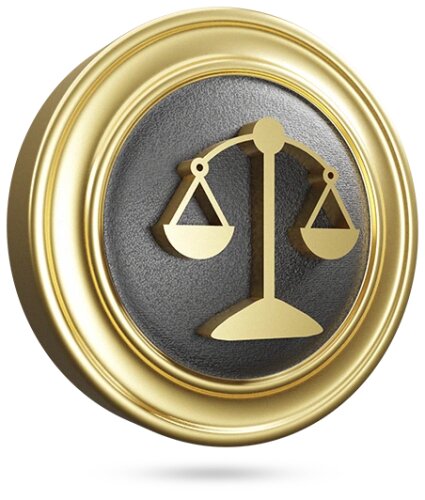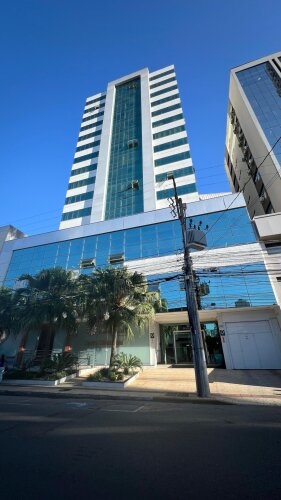Best Restructuring & Insolvency Lawyers in Itajaí
Share your needs with us, get contacted by law firms.
Free. Takes 2 min.
List of the best lawyers in Itajaí, Brazil
About Restructuring & Insolvency Law in Itajaí, Brazil
Restructuring and insolvency law in Itajaí, Brazil, deals with the legal processes and mechanisms available to businesses and individuals facing serious financial difficulties. Located in the state of Santa Catarina, Itajaí has a vibrant port and industrial sector, which means that local businesses sometimes encounter financial challenges due to economic fluctuations, market changes, or operational difficulties. Brazilian insolvency law is governed mainly by federal legislation, but local courts and practices in Itajaí may have particular procedures or interpretations. The main legal frameworks are the Brazilian Bankruptcy Law (Lei de Falências - Law 11.101/2005) and more recent amendments. The aim of the law is to offer ways for businesses to recover and preserve jobs, or when recovery is not feasible, to ensure an orderly winding up that protects creditors’ rights.
Why You May Need a Lawyer
There are several common scenarios where individuals or companies in Itajaí might require the help of a restructuring and insolvency lawyer:
- When your business is unable to pay debts and you need advice on alternatives such as judicial recovery (recuperação judicial) or extrajudicial recovery.
- If you are a creditor and need to understand how to protect your interests in an insolvency case filed by a debtor in Itajaí.
- When facing unexpected asset seizure or legal action from creditors and wanting to know your rights and obligations.
- In the case of personal financial distress, understanding whether personal bankruptcy is an option and what the legal process involves.
- If you are involved in a business acquisition that includes distressed assets or companies in financial difficulty.
- When you want to negotiate with creditors to avoid formal bankruptcy or insolvency proceedings.
A lawyer specialized in restructuring and insolvency can provide guidance on the best legal strategies, represent clients before local courts, and ensure compliance with all procedural requirements.
Local Laws Overview
In Itajaí, as in the rest of Brazil, the primary legislation governing insolvency and restructuring is Law 11.101/2005, which covers three main processes: judicial recovery (recuperação judicial), extrajudicial recovery (recuperação extrajudicial), and bankruptcy (falência). Some notable aspects include:
- Judicial Recovery: Companies in financial distress can request court-supervised recovery to continue operations while restructuring debts.
- Extrajudicial Recovery: Offers a more flexible, out-of-court option negotiated directly with creditors, but still requires court homologation.
- Bankruptcy: When recovery is not possible, bankruptcy proceedings liquidate the company's assets to repay creditors according to legal priorities.
- Creditors’ Committees: In some cases, creditors may form committees to negotiate and oversee proceedings, providing input and supervision during restructuring or bankruptcy.
- Role of the Trustee (Administrador Judicial): An appointed professional who manages the proceedings, reporting to the court and ensuring the process respects the law and creditors' rights.
Itajaí’s local courts process these cases in accordance with federal guidelines but may have specific administrative requirements. Working with an attorney familiar with the local judiciary and business practices is a significant advantage.
Frequently Asked Questions
What is the difference between judicial recovery and bankruptcy in Brazil?
Judicial recovery allows a financially distressed company to restructure debts and continue operating under court supervision, while bankruptcy is a liquidation process when recovery is not viable and involves selling the company's assets to pay off creditors.
Can individuals file for bankruptcy in Itajaí, Brazil?
Only business entities can file for judicial and extrajudicial recovery under current Brazilian law. Individuals and sole proprietors may be subject to bankruptcy but do not have access to court-supervised restructuring.
How long does a judicial recovery process typically take?
The duration varies, but the initial approval process for a recovery plan usually takes a few months. The full implementation of a recovery plan can take several years, depending on the complexity of the business and debt structure.
What are my options if my business cannot pay its debts on time?
You may explore out-of-court negotiations, extrajudicial recovery, judicial recovery, or ultimately bankruptcy. A lawyer can recommend the most suitable option based on your circumstances.
How are creditors paid in bankruptcy proceedings?
Payments are made based on a legal hierarchy, with certain creditors (such as employees) having priority. Secured creditors, tax authorities, and unsecured creditors follow in a predetermined order.
What happens to employees if a company goes bankrupt?
Employee claims have priority in bankruptcy and are typically among the first to be paid from the sale of company assets, subject to limits established by law.
Can small businesses access judicial recovery in Itajaí?
Yes, small and microenterprises can apply for judicial recovery, and there are adapted procedures designed to simplify the process for such businesses.
Do I need to notify all creditors before filing for recovery?
Yes, creditors are notified as part of the judicial or extrajudicial recovery process. Their participation is essential for plan approval and negotiating terms.
Will filing for bankruptcy or recovery affect my credit rating or ability to do business?
Yes, court proceedings are public and may impact your business's reputation and access to credit. However, recovery can save the company if successfully implemented.
Are there alternative dispute resolution methods available in insolvency cases?
Yes, negotiation and mediation are encouraged before and during court proceedings, especially for extrajudicial recovery. These methods can help achieve faster, mutually agreeable solutions.
Additional Resources
If you need more information or assistance regarding restructuring and insolvency in Itajaí, the following resources can be useful:
- Junta Comercial do Estado de Santa Catarina (JUCESC): The state board of trade, where company registrations and commercial information can be accessed.
- Receita Federal: For questions about tax compliance and fiscal liabilities during insolvency.
- Defensoria Pública de Santa Catarina: Offers free legal assistance to qualifying individuals and small businesses.
- Itajaí Commercial Association (ACII): Provides local business support, education, and might offer resources or referrals for distressed businesses.
- Order of Attorneys of Brazil - Itajaí Section (OAB Itajaí): Can help you find qualified legal professionals specialized in restructuring and insolvency law.
Next Steps
If you are facing financial distress or need assistance with questions about restructuring or insolvency in Itajaí, Brazil, consider taking the following steps:
- Gather all relevant financial documents and information about your debts, creditors, and assets.
- Consult with a qualified restructuring and insolvency lawyer experienced with local Itajaí courts and businesses.
- Evaluate all available options, including negotiations, court-supervised recoveries or, when unavoidable, bankruptcy.
- Communicate openly with creditors and stakeholders to explore possible solutions outside of court, where appropriate.
- Stay informed about your rights and responsibilities to avoid unintentional violations of Brazilian law during financial crisis management.
A local legal professional is your strongest ally in navigating complex restructuring and insolvency processes, ensuring the best possible outcome for your situation.
Lawzana helps you find the best lawyers and law firms in Itajaí through a curated and pre-screened list of qualified legal professionals. Our platform offers rankings and detailed profiles of attorneys and law firms, allowing you to compare based on practice areas, including Restructuring & Insolvency, experience, and client feedback.
Each profile includes a description of the firm's areas of practice, client reviews, team members and partners, year of establishment, spoken languages, office locations, contact information, social media presence, and any published articles or resources. Most firms on our platform speak English and are experienced in both local and international legal matters.
Get a quote from top-rated law firms in Itajaí, Brazil — quickly, securely, and without unnecessary hassle.
Disclaimer:
The information provided on this page is for general informational purposes only and does not constitute legal advice. While we strive to ensure the accuracy and relevance of the content, legal information may change over time, and interpretations of the law can vary. You should always consult with a qualified legal professional for advice specific to your situation.
We disclaim all liability for actions taken or not taken based on the content of this page. If you believe any information is incorrect or outdated, please contact us, and we will review and update it where appropriate.














